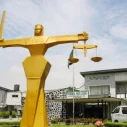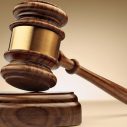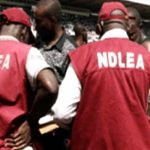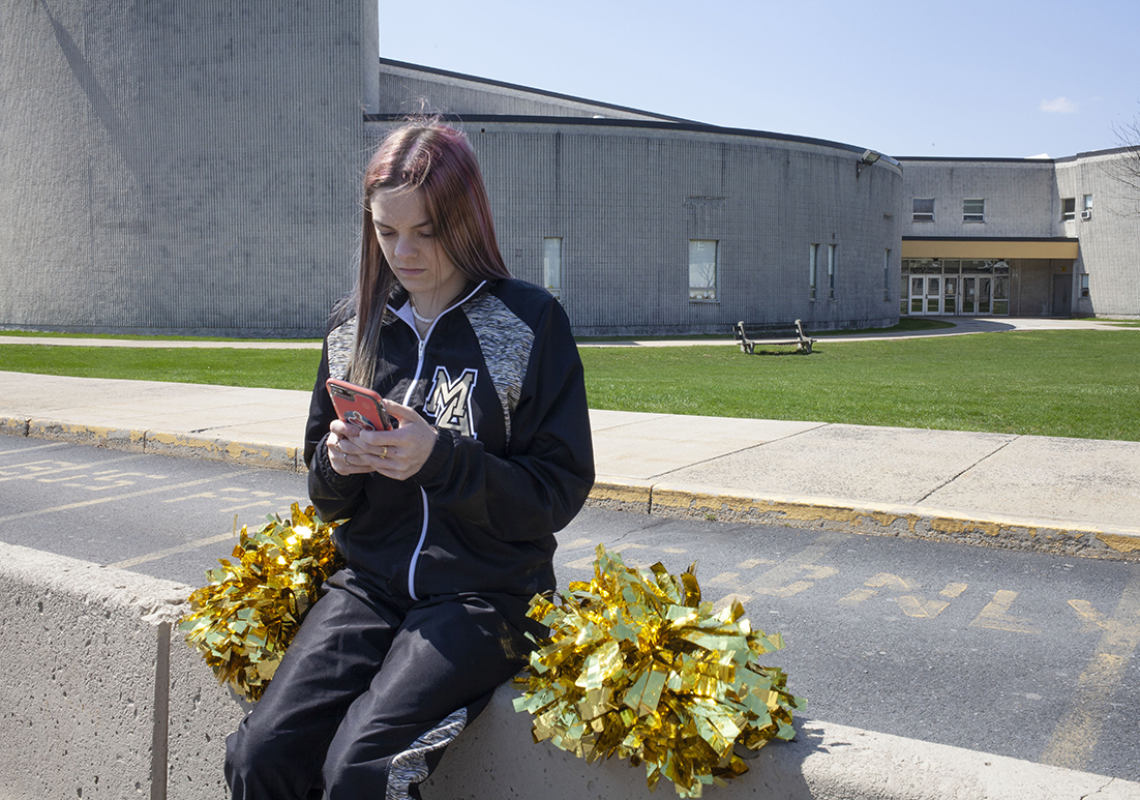Legal
The justices were divided on whether to issue a sweeping ruling bringing First Amendment law for schools into the social media age or settle for a more modest decision.
In this photo provided by the American Civil Liberties Union, Brandi Levy wears her former cheerleading outfit as she looks at her mobile phone while sitting outside Mahanoy Area High School in Mahanoy City, Pa., on April 4, 2021. | Danna Singer/ACLU via AP
By JOSH GERSTEIN
Updated:
Link Copied
The Supreme Court’s first big student free-speech case of the internet era appeared to divide the justices on Wednesday about whether to issue a sweeping ruling bringing First Amendment law for schools into the social media age or settle for a much more modest decision.
The case, framed as a test of school officials’ power to regulate student speech on the web, stems from a profane but mundane lament on Snapchat by a Pennsylvania ninth-grader, Brandi Levy, about being denied a spot on the varsity cheerleading squad.
“F— school, f—-softball, f— cheer, f—everything,” Levy wrote in her 2017 message, which prompted a one-year suspension from the cheerleading program.
The arguments over Levy’s case seemed to scramble some of the court’s usual ideological lines on speech issues, as liberal justices who often favor robust free-speech rights questioned whether limiting the authority of school officials to speech physically taking place on their campuses or at official events could undercut efforts to rein in bullying and harassment.
The chief proponent on the court for a broad decision grappling with student free-speech rights appeared to be Justice Samuel Alito, who as an appeals court judge two decades ago issued an influential ruling warning that some school anti-harassment rules unconstitutionally intrude on free expression.
A lawyer for the Pennsylvania school district, Lisa Blatt, told the justices that officials needed to have authority to police online speech directed at the school just as they do with on-campus speech.
“The speaker’s location is irrelevant,” Blatt insisted. “When it comes to the internet, things like time and geography are meaningless. … The fact she said it at the Cocoa Hut shouldn’t matter to the analysis.”
But Alito said deciding what statements are about a school amid the torrent of daily social-media posts about friends, sports, politics and social issues is no easy task.
“What troubles me is what you’ve just proposed is a very nebulous line,” said the conservative justice, who was appointed by President George W. Bush. “I’m quite concerned about the effects of this on freedom of speech. … I have no idea what it means to ‘target the school.’”
Justice Stephen Breyer said the case was ill-suited to making far-reaching generalizations about free speech, and he suggested it was unwise to use it as a vehicle to do so.
“I can’t write a treatise on the First Amendment in this case,” the liberal appointee of President Bill Clinton said. “Everyone seems to want some rule.”
Breyer did scoff at the idea that schools should be trying to punish bad language uttered outside of school.
“She used swear words, unattractive swear words, off-campus,” Breyer declared. “Mmmmh, my goodness, if swearing off campus [is forbidden] every school in the country will be doing nothing but punishing” that.
Justice Brett Kavanaugh seconded Breyer’s view that the case was a poor one to try to set a bright-line rule for student speech.
“This is not the occasion for the court to try to decide how the close cases involving in school speech ought to be dealt with,” said the appointee of President Donald Trump, asking at one point whether writing a detailed opinion in the case was “worth the candle.”
Still, when it came to the facts of Levy’s case and her punishment, Kavanaugh was, hands-down, the most anguished member of the court. The justice, who is an ardent sports fan and has served for years as coach of a middle-school girls basketball team, seemed outraged at the decision to kick Levy out of cheerleading for a year for venting about the kind of team-roster decision that can indeed seem earth-shattering to a high school kid.
“It’s so important to their lives,” Kavanaugh said. “Coaches sweat the cuts, and it guts coaches to have to cut kids who are on the bubble. … A year suspension just seems excessive to me.”
Kavanaugh noted that when basketball great Michael Jordan was inducted to the Hall of Fame, he still got upset as he described being cut from a high school team three-decades earlier. While the justice couldn’t help but share his feelings, venting again later in the session that “a year seems like a lot,” he eventually seemed to concede that the proportionality of the punishment really wasn’t an issue before the court.
“I obviously think it’s unfortunate this spiraled this case the way it did,” Kavanaugh added. “I completely understand the young woman’s reaction to being upset with the decision.”
Alito seemed perturbed by his colleagues’ reluctance to embrace the case as a chance to opine broadly on students’ free speech rights. He suggested disdainfully that if the court wanted to dispose of the case “without deciding those tough issues,” it should just dismiss the case without issuing any ruling. That wouldn’t set a national precedent, but would leave in place an appeals court decision saying the Mahanoy Area School District had no authority to police Levy’s speech outside the school or its programs.
Alito said that despite Levy’s “colorful language,” her Snapchat post amounted to no more than saying: “I hate the school. I have no respect for the school.”
Levy’s attorney, David Cole of the American Civil Liberties Union, warned the justices that rules the court established a half-century ago allowing limits on on-campus speech should not be extended to the internet and the vast array of social media platforms that young people now use with gusto.
“That’s where kids speak,” Cole said. Putting online speech under school control means “kids won’t have free speech, period,” he added. “They will essentially be carrying the schoolhouse with them wherever they go.”
Blatt attempted to address conservative justices’ concerns by declaring that out-of-school comments by students on political or religious topics should not be subject to any regulation by school authorities, but that concession didn’t seem to be very satisfactory to any of the justices.
Several justices said those kinds of statements could produce as much, if not more, disruption on campus as airing grievances against teachers or other students. Justice Clarence Thomas challenged that carve-out by invoking several polarizing topics of the day, including Black Lives Matter, Antifa and even the Proud Boys — a right-wing group involved in the Jan. 6 Capitol riot.
“People can take sides on that that are just as disruptive in the school setting as comments about Ms. Johnson,” said Thomas, who was appointed by President George H.W. Bush and is the longest-serving justice on the current court.
One surprising aspect of Wednesday’s arguments was the absence of discussion about how the ongoing pandemic has further blurred the lines about what is considered on- or off-campus conduct. Many students haven’t set foot on a campus for more than a year, while others spend part of the week in online classes and part in a traditional classroom.
A decision in the case is expected by the time the justices leave town for their summer recess in late June or early July.
Bianca Quilantan contributed to this report.
CORRECTION: An earlier version of this article stated the wrong day for when the Supreme Court hearing took place.
Link Copied
© 2022 POLITICO LLC






